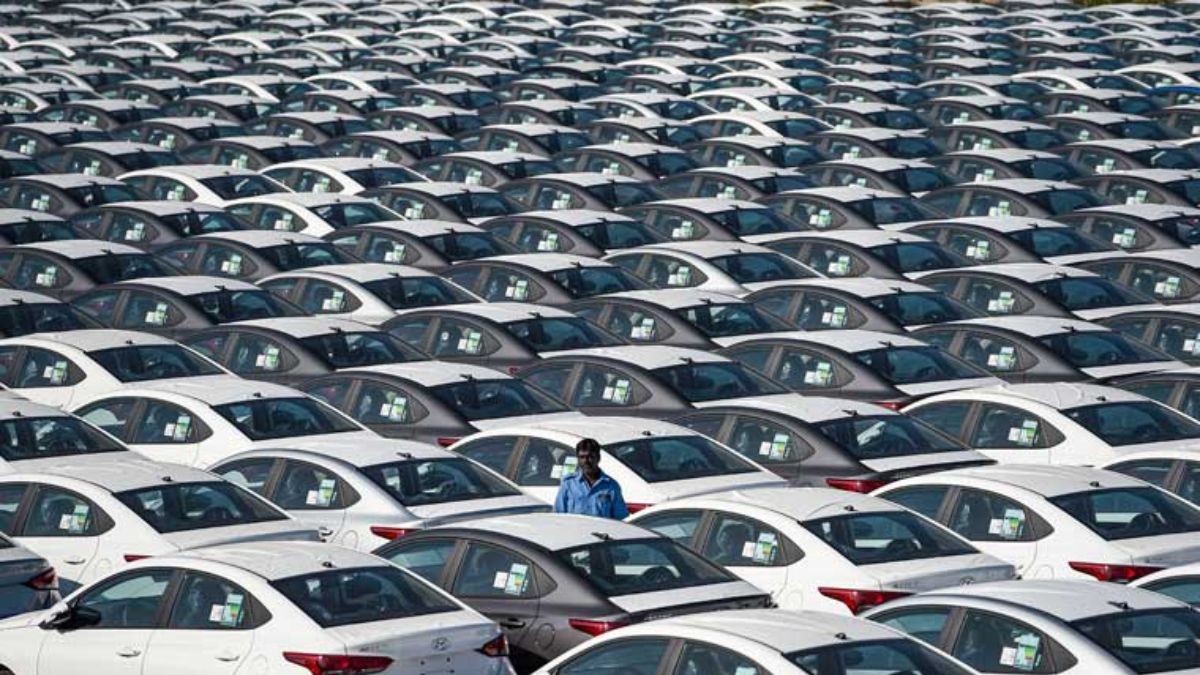Festive demand powers passenger vehicle sales in October; Maruti Suzuki bets on small cars making a comeback
 Representational image | PTI
Representational image | PTI
India’s passenger vehicle market was once dominated by small cars like the Maruti Suzuki Alto, Swift, and Hyundai Santro, i10 among others. However, in the last few years, consumer preferences have slowly shifted towards compact and mid-size sports utility vehicles. The trend towards SUVs is similar to what has been seen in more developed markets.
However, with the Goods and Services Tax (GST) on sub-four metre vehicles being reduced sharply from 28 per cent to 18 per cent, while luxury cars and larger SUVs will be levied a flat 40 per cent GST, are things about to change? Will small cars regain the love and attention that they once did from consumers?
India’s largest car maker Maruti Suzuki certainly feels so. The company still has the largest portfolio of vehicles in the sub-four metre segment – Alto, Celerio, S-Presso, Ignis, Wagon R, Swift and Dzire. Other rivals have at best two-three products in the segment or none. Maruti Suzuki Chairman R.C. Bhargava believes there are still many people interested in smaller cars.
“The perception, which some people had that aspirations of Indians have changed, that nobody wants to buy small cars, the market has moved up to more bigger and luxurious cars, that has proved to be incorrect. There are still a lot of people who want to buy small cars so that they can have a much better form of personal commutation,” said Bhargava.
During April-September this year, total passenger car wholesales in the country were down 5.8 per cent to 6.22 lakh units from 6.60 lakh units, according to Society of Indian Automobile Manufacturers (SIAM). In contrast, utility vehicles sales rose 0.7 per cent to 13.53 lakh units from 13.43 lakh units.
At Maruti Suzuki, sales of its mini and compact vehicles between April-October were down 1.9 per cent to 4.95 lakh from 5.04 lakh.
While preference towards SUVs has indeed gone up over the last few years, industry officials have also for some time now pointed to the rising prices of vehicles over the last few years, due to various regulatory changes like the shift to BS-VI emission norms and stricter safety requirements, apart from input costs, which have made small cars out of reach of first-time car buyers.
That is expected to change. With the GST being reduced from 28 per cent (plus additional compensation cess) to 18 per cent, small cars have become cheaper by around Rs 70,000 to Rs 1 lakh. Officials believe it will help attract many consumers back to this segment.
Maruti’s sales data of small cars for October 2025, which marked the crucial festive period of Diwali, is mixed. While wholesales in the entry-level mini segment, which comprises the Alto and S-Presso, were still down 15 per cent to 9,067 units from 10,687 units in October 2024, sales of compact cars were up 15.5 per cent to 76,143 units from 65,948 units.
According to Bhargava, retail sales this festive season have seen a 30 per cent uptick, and currently the car maker has 3.5 lakh bookings, out of which 2.5 lakh bookings are in the segment that attracts 18 per cent GST. Maruti officials say that demand for cars like Baleno and Swift has been such that production teams have been working for the past two-three Sundays too.
“At Maruti, as 70 per cent of our production is in the 18 per cent GST category, we are going to see a change in the product mix. The retail sales of vehicles in this 18 per cent category is likely to grow faster than the sale of vehicles in the 40 per cent GST category. What is today actually 69 per cent market share of the 18 per cent category for Maruti, I see that going up slowly as the number of small car sales goes up,” said Bhargava.
He feels that at least some of the other car makers will also revise their product mix.
Festive demand powers October automobile sales
Meanwhile, several auto makers reported strong passenger vehicle sales in October, on the back of the festive season demand.
Maruti Suzuki’s total domestic sales of PVs were up 10.5 per cent to 1.76 lakh units. Tata Motors’ domestic passenger vehicles sales, including electric vehicles, surged 27 per cent to 61,314 units.
Tata Motors said its electric vehicle wholesales were at an all-time high in October at 9,286 units, up 73 per cent from a year ago.
Toyota Kirloskar reported a 39 per cent jump in sales in October at 42,892 units.
In comparison, Hyundai saw subdued domestic sales in October at 53,792 units, compared with 55,568 units in October 2024. According to Tarun Garg, the company’s chief operating officer, the sub-four metre compact SUV Venue and the mid-size Creta combined saw second highest monthly sales of 30,119 units and the momentum may accelerate with the launch of the new Venue around the corner.
Skoda Auto said it sold 8,252 units, its highest-ever monthly sales in October 2025. This was driven by the sub-four metre Kylaq SUV unveiled last November, while demand from its other products was steady, it noted.
Business